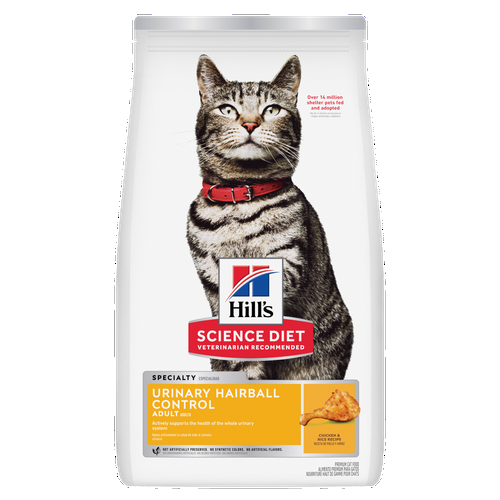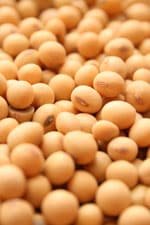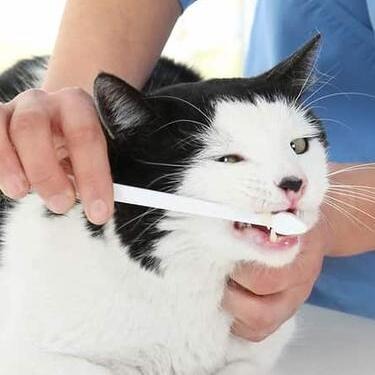
-
Find the right food for your petTake this quiz to see which food may be the best for your furry friend.Find the right food for your petTake this quiz to see which food may be the best for your furry friend.Featured products
 Hill's Science Diet Adult Oral Care Chicken, Brown Rice & Barley Recipe Dog Food
Hill's Science Diet Adult Oral Care Chicken, Brown Rice & Barley Recipe Dog FoodClinically proven kibble technology to reduce plaque & tartar build-up
Shop Now Adult Small & Mini Lamb Meal & Brown Rice Recipe Dog Food
Adult Small & Mini Lamb Meal & Brown Rice Recipe Dog FoodFor the faster metabolism of Small & Mini dogs
Shop Now Adult 7+ Small & Mini Chicken & Brown Rice Recipe Dog Food
Adult 7+ Small & Mini Chicken & Brown Rice Recipe Dog FoodFor the unique nutritional needs of mature Small & Mini dogs
Shop NowFeatured products Adult Indoor Chicken Recipe Cat Food
Adult Indoor Chicken Recipe Cat FoodSupports energy level and beautiful fur in indoor cats
Shop Now Hill's Science Diet Adult Sensitive Stomach & Skin Dog Food
Hill's Science Diet Adult Sensitive Stomach & Skin Dog FoodHighly digestible recipe, gentle on stomachs. Nourishes skin & promotes a lustrous coat
Shop Now Adult Urinary Hairball Control Chicken & Rice Recipe Cat Food
Adult Urinary Hairball Control Chicken & Rice Recipe Cat FoodActively supports the health of the whole urinary system
Shop Now -
Featured articles
 My Pet Ate a Lizard — What Should I Do?
My Pet Ate a Lizard — What Should I Do?Learn what to do if your pet eats a lizard, including whether they can be toxic and symptoms to keep an eye on when they've swallowed one.
Read More Easy DIY Dog & Cat Toys: Nine of Our Favorites
Easy DIY Dog & Cat Toys: Nine of Our FavoritesBrowse this comprehensive guide for several of our favorite DIY dog and cat toys that are sure to put a little pep in your pet's step.
Read More 15 Pet-Friendly Cities Ideal for a US Road Trip
15 Pet-Friendly Cities Ideal for a US Road TripCheck out our list of pet-friendly U.S. cities that are excellent travel options, offering off-leash dog parks and pet-friendly restaurants & hotels.
Read More -



Moms everywhere, at one time or another, advised, "Eat your veggies, they're good for you." As usual, mom was right. Vegetables contain high levels of many vitamins, minerals, amino acids and more. The same holds true for soy products.
The Benevolent Bean
Soy products are one of the world's oldest and most widely used sources of high quality protein. Its complementary amino acid profile combines well with other proteins and grains.1 Unlike other common protein sources such as meat, fish, poultry or milk, soy products have all of these healthy characteristics.2,3
- High in vitamins and folic acid
- High in essential amino acids, especially lysine
- Concentrated source of fatty acids
- No cholesterol (soy has even been shown to lower cholesterol levels in humans and animals)
- Good source of fiber
- Good source of potassium
- Good digestibility
- Less allergenic for dogs than other protein sources such as meat and dairy products4
- Contains key antioxidants
Key points
- Soy products are a superb source of bodybuilding protein and essential amino acids.
- Soy provides coat-nourishing vegetable oil and healthful fiber.
Good for People
Soy products are used in a variety of human foods including baked goods, breakfast cereals, pasta, beverages, meat and dairy products. In people, diets high in ,soy are believed to reduce the risks of heart disease by lowering cholesterol levels. Soy products also contain isoflavones (antioxidants), which researchers believe to be a potential weapon in the fight against cancer.2,3


Tasty Tips
Young pets may need several visits in their first year for vaccinations. Adult pets generally benefit from annual check-ups, while senior or special-needs pets might require more frequent visits.
Good for Cats
As is often the case in nutrition, what's good for people is also good for cats. Despite the attempts of researchers to prove a link between soy and bloat, no studies to date show this link. Rather, breed, body type, weight and stress level are significant risk factors.5,6 Our research, and the research of others, continues to show that soy products are a superb source of bodybuilding protein, coat-nourishing vegetable oil and healthful fiber for cats.
If you’re looking for a product without soy, Hill’s offers Science Diet recipes for cats with no corn, wheat or soy.
1 Hill D. Alternative Proteins in Companion Animal Nutrition. Pet Food Association of Canada Fall Conference. http://www.ddgs.umn.edu/sites/biodieselfeeds.cfans.umn.edu/files/cfans_asset_412249.pdf. Presented October 27, 2004. Accessed March 14, 2011.
2 United Soybean Board website. soyconnection.com. Accessed May 17, 2010.
3 National Soybean Research Laboratory website. Nutritional and Health Benefits of Soybeans. nsrl.illinois.edu/soy_benefits. html. Accessed May 17, 2010.
4 Hand MS, Thatcher CD, Remillard RL, et al. eds. Small Animal Clinical Nutrition, 5th ed. Topeka, KS: Mark Morris Institute, 2010.
5 Raghavan M, Glickman NW, Glickman LT. The Effect of Ingredients in Dry Dog Foods on the Risk of Gastric Dilatation-Volvulus in Dogs. J Am Anim Hosp Assoc. 2006;42:28-36.
6 Raghavan M, Glickman NW, McCabe G, et al. Diet-Related Risk Factors for Gastric Dilatation-Volvulus in Dogs of High-Risk Breeds. J Am Anim Hosp Assoc.2004;40:192-203.


One of our staff authors prepared this article for you
Related products

For the unique nutritional needs of mature Small & Mini dogs

Improves everyday ability to get up & go

For the faster metabolism of Small & Mini dogs

Clinically proven kibble technology to reduce plaque & tartar build-up
Related articles

Learn what to do if your pet eats a lizard, including whether they can be toxic and symptoms to keep an eye on when they've swallowed one.

Check out our list of pet-friendly U.S. cities that are excellent travel options, offering off-leash dog parks and pet-friendly restaurants & hotels.

Learn about veterinary dental care for your pet, including deep teeth cleaning procedures, which can help your dog or cat maintain proper dental health.

Browse this comprehensive guide for several of our favorite DIY dog and cat toys that are sure to put a little pep in your pet's step.

Put your pet on a diet without them knowing
Our low calorie formula helps you control your pet's weight. It's packed with high-quality protein for building lean muscles, and made with purposeful ingredients for a flavorful, nutritious meal. Clinically proven antioxidants, Vitamin C+E, help promote a healthy immune system.
Put your pet on a diet without them knowing
Our low calorie formula helps you control your pet's weight. It's packed with high-quality protein for building lean muscles, and made with purposeful ingredients for a flavorful, nutritious meal. Clinically proven antioxidants, Vitamin C+E, help promote a healthy immune system.

